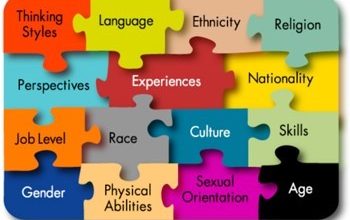Business Promotion in Ilorin: 4 Strategies to Boost Sales
Struggling to grow your business in Ilorin? These practical tips will help you gain visibility, attract your ideal customers, and boost your profits.

It is true that as a business owner, you may understand the importance of strategic marketing to increase your brand visibility and drive sales as well as growth. However, even with the variety of marketing strategies available for business promotion in Ilorin, you may still struggle to gather leads, let alone convert them. The truth is, this can be overwhelming because the primary aim of running a business is to make a profit.
In this article, we will share actionable points and working strategies to promote your business and sales in Ilorin. It does not matter whether you are just starting or you are looking to scale your business, we will be glad to provide you with these proven strategies.
1. Understand Your Target Audience
The worst thing to do while promoting your business in Ilorin as a business owner is to believe that everybody is your target audience. Nope! Not everyone must and will buy from you. Some will not know that your brand exists and that is perfectly fine. Aiming to sell to everyone is aiming to sell to none.
Before you start making plans to sell to everyone, you must define who needs your product or service. You can group them into primary and secondary audiences. Your primary target audience is those who consume your product or use your service at the final stage.
On the other hand, your secondary target audience is the buyer of your product or service but not necessarily the end users. A good example is a mother who buys a cartoon of noodles; however, the children end up being the consumers. Understanding this distinction is key to effective business promotion in Ilorin and beyond.
Another very important point to consider is to understand their needs, preferences, and pain points. What motivates them to want to make a purchasing decision? When you get to know all these, you are better equipped to tailor your brand message by creating a buyer persona and packaging your product or service in a way that they patronize you effortlessly.
2. Have a Unique Value Proposition (UVP)
A UVP makes you stand out among your competitors and is a unique statement that captures how your product or service solves customers’ needs, setting your brand apart from competitors. Primarily, your UVP tells a reason a customer should buy from you.
For instance, as a business owner in the food industry, you know that you are not the only one operating within the field in Ilorin, hence a good reason to design a compelling UVP to attract customers. The reason one person would prefer item 7 over another food brand in Ilorin might be that its UVP is specifically targeted toward helping students get already-made food while saving time.
An important point to know is that your UVP is different from your Unique Selling Point (USP). A USP is a subset of UVP that focuses on a specific value or benefit that your brand provides.
Item 7 USP might for it to have its branch in strategic locations in Ilorin or even its taste because should you go to any of their branches, the taste of their food remains the same and this has made them build a strong customer base.
Your UVP is the foundation of your business success. Moreover, if the foundation of your business is faulty, what can the business owner do? Having a UVP helps to communicate the values of your product or service.
With this, you should know that your fear should not be about having competitors; rather it should be more about what makes you stand out in the pool of other similar brands.
Creating a better UVP comes from understanding the specific needs and concerns of your target audience, which results in having a better USP.
3. Leverage Digital Marketing Platforms
In today’s world, building and maintaining a strong online presence is crucial to how far your brand can go. The logic is, that the more leads you have, the more sales you make and one of the major ways to achieve this is to use digital marketing channels to your advantage.
Some of the digital marketing channels to use are Search Engine Optimization (SEO), Pay-Per-Click (PPC) Advertising, Social Media Marketing, Email Marketing and others. When done correctly, it helps to increase your brand’s online presence, reach a wider target audience, increase engagement and maintain a good reputation.
4. Build on Content Marketing
Ever heard of the catchphrase – Content is King? This simply means that as a brand, one genuine way to establish yourself as a trusted authority in your industry is to maximize content marketing. Show your audience what your brand represents. What problem are you solving?
Demonstrate your expertise and display your brand’s personality. What this does is that it helps attract and retain a clearly defined audience. It also helps to convert engaged and nurtured audience members into paying customers. There are many formats of content marketing such as video, articles, podcasts, and others. The goal is to understand what your brand does and which content format fits into it.
Growing your business to its peak and making sales should not be hard but can be daunting when you do not know the right business promotion strategies to employ as a business owner. With these proven strategies, you can be sure to record a significant yet positive change in your business. If you’re serious about business promotion in Ilorin, these tips will help you gain visibility, attract the right audience, and increase your sales.
Related Post: What Are Business Leads and Why Do They Matter for Entrepreneurs?




